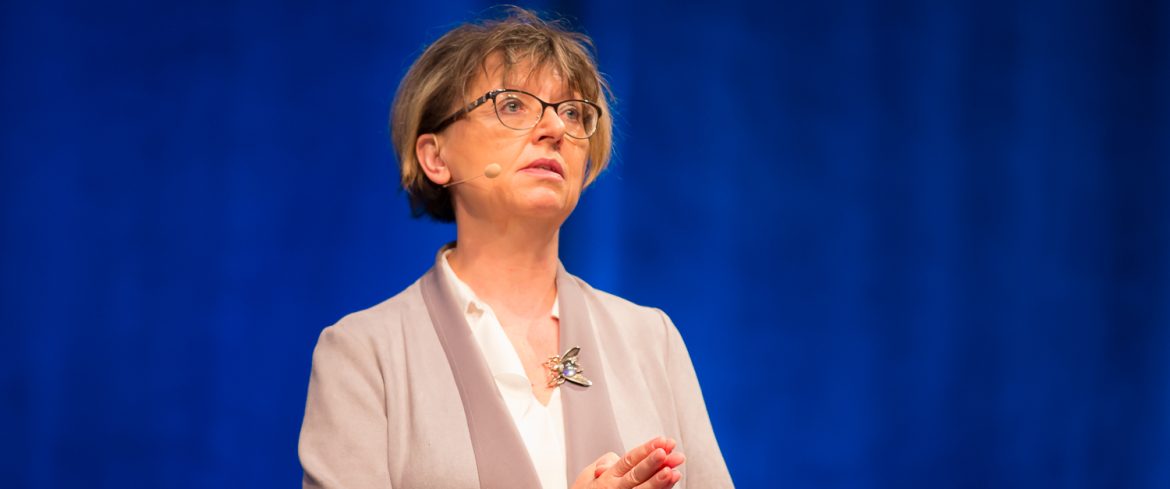The International Coaching Federation
educating and governing the best practices of the executive coaching profession
With company demand increasing for corporate coaching services, the International Coaching Federation helps to represent the needs of the industry
The business environment is complex at the moment. With inherent challenges ranging from supply chain issues, an increasingly high-interest rate economic environment, and the ever-growing skilled employee shortages across the country, specialized services have become more popular than ever to help companies navigate the new corporate environment.
The area of business coaching for individuals, executives, managers, and corporate teams is one such service and has grown substantially over the last several decades. Recognizing the increasing demand for skilled and certified business coaches, in 1995, the International Coaching Federation (ICF) was founded. The ICF was formed to help give credibility to the emerging profession while giving coaches a place to connect with one another.
Because the profession of coaching was, and to this day, is still unregulated, the ICF has also taken upon itself the responsibility over the years of developing and promoting codes and standards for the profession, while simultaneously becoming its main accrediting, credentialing, and educating body. Today, the ICF offers three highly respected credentials: Associate, Professional, and Master Certified Coach.

Magdalena Mook, CEO
Magdalena Mook has been ICF’s CEO since 2005, and she’s watched the profession take off.
“The growth has been quite tremendous,” she exclaims, “especially in the last five years – accelerating by 10-13 percent every year, which is quite unprecedented. Right now, we are a platform for 60,000 individuals in over 160 countries.”
While the COVID-19 pandemic years were difficult for many associations, ICF, after what Mook characterizes as “a little bit of initial panic in the coaching market,” actually expanded.
“It was quickly obvious that coaches could easily and quite efficiently turn to virtual ways of providing their services. And the clients accepted it,” she states. “As organizations were struggling with remote work, coaching was becoming a proven methodology for leaders and individuals alike in finding ways to better cope with such a tremendous unknown.”
“In the early days of the pandemic, people had time to complete their training and be eligible for membership and eventually for their credentials. So, for us, it was quite a period of growth with new members joining the organization and more individuals seeking the professional credentials that our organization offers,” she continues.
The type of rapid growth that Mook witnessed necessitated a re-evaluation of the association’s structure, something which she says took place over the last three years, starting just before the pandemic and accelerating during its occurrence.
“We were already in the way of transforming the organization when the pandemic hit,” she recalls. “It was challenging, but it showed our resilience.” Today, the newly reconstituted ICF comprises six Family Organizations that focus on specific sections of the coaching marketplace.
According to Mook, one of the most significant brands in ICF’s Family Organization ecosystem is Professional Coaches. “They have organizing chapters; they provide leadership development and training; and they support community and networking for individuals,” she explains.
Credentials and Standards is the brand that oversees and manages the credentialing of individual coach practitioners; Coaching Education oversees and manages the accreditation and approval of coaching education providers.
The ICF Foundation is the fourth pillar and a philanthropic arm of the ecosystem. “It offers coaching for the population that otherwise would not have access to coaching,” Mook reports. “And we started offering scholarships for individuals that would become coaches who, otherwise, might not have easy access to coaching education.”
The fifth ICF brand is Coaching in Organizations. It provides standards for businesses and organizations that already use coaching within their own cultures in order to further develop their coaching capacities and capabilities. The sixth brand is the Thought Leadership Institute. Its goal is to create and influence the future of coaching by facilitating interaction between innovators, researchers, technologists, venture capitalists, press, and influencers to build and maintain the most comprehensive and highest-quality body of knowledge on the art and practice of coaching.
“Coaching is still fairly new and evolving,” Mook relates. “So, there is quite a lot of research being done about coaching and the efficacy of coaching; what coaching does; how coaching supports the development of new ways of working. So, our Thought Leadership Institute looks into the future of coaching and how it can support development in different aspects of society. Our vision calls for coaching to become an integral part of a thriving society where individuals can reach their highest potential by fully living and contributing to the overall good of humanity.”
Mook shares that the ICF is “keen on building strategic alliances with other associations and organizations that are like-minded, that share our values, that share our vision. So, we have worked with several other coaching organizations that exist in the marketplace, like the Association of Change Management Professionals”
“We recently started working with the World Federation of People Managers Association. So, we are very keen on helping our members expand their views by exposing them to other associations that are bringing value and adding to what ICF offers as an organization, directly. We believe that by those strategic alliances, we can leverage each other and, in the end, offer our clients the best service that they can receive,” Mook notes.
“We also spend quite a lot of time focusing on regulatory issues, positioning coaching as a self-regulating profession, while also seriously looking into attempts to regulate it,” Mook adds.
“We don’t lobby directly, however, we do have many chapters that are operating at the state level and have very direct and friendly relationships with their legislatures and local governments. At the federal level, we are members of several coalitions that have to do with the credentialing of individuals. For example, we are avid supporters of initiatives taken up by the American Society of Association Executives.
“The federal government is very, very big on coaching and there are phenomenal coaching initiatives within the federal government, so we are not directly working with the feds, but we have many people who do and they happen to be members of ICF.”
Mook believes that coaching is a profession that can be learned and that “anybody can attempt to become a coach. In our over 60,000 members, we have a very diverse community who are great coaches,” she avers.
The ICF also has a newly revised set of eight core coaching competencies, based on evidence collected from more than 1,300 coaches around the world including both ICF members and non-members, and representing a diverse range of coaching disciplines, training backgrounds, coaching styles, and experience levels.
“Establishing a relationship is a core competency,” Mook explains. “Confidentiality is one of the most important elements of the coaching relationship; being able to instill in a team or individual that the conversation is a safe one. And so are coaching ethics. We have a robust code of ethics for our members and ethical conduct is the first of our coaching competencies.”
Mook also believes that a good coach is someone who is very self-aware and, perhaps most importantly, a good listener. “And it’s not just an innate trait – it is something that requires deep and continuous education to ‘stay fit for purpose’ in order to offer a service to a client in a way that best supports the client.”
Mook stipulates some best practices for an individual or business looking to hire a coach. “Find the right coach,” she begins. “Because it’s unregulated, anybody can call themselves a coach. So, it is very important to check the credentials of an individual, and where they were trained. It’s important to find a coach that brings the skills, talents, and experience that fits the profile of the client and the client’s goals.”CF reviews its Code of Ethics every three years to make sure it is reflective of the coaching practice and remains a current and relevant guide for coaches and clients alike around ethical conduct.
“A typical first session would give a client some insight into what to expect and not to expect; what coaching is and what coaching is not. Sometimes coaching is not necessarily a silver bullet; sometimes good old-fashioned training might be better. Sometimes mentoring might be better; sometimes something different that would bring better results for the client. So, an explanation of what to expect from the coaching relationship is really important. Equally important is a conversation about the ethics of the relationship and the confidentiality of the relationship,” she details.
“A coach is not a consultant,” Mook stresses. “A coach is not somebody who comes by and knows there’s a problem and leaves with a solution. A coach, instead, is a catalyzing partner in a client’s own search for solutions. And a coach is also an accountability partner; in other words, somebody who nudges the client to move the needle in their own professional journey. A coach is a trusted partner, but in a very neutral place; it’s about assistance for the client and not the opinion of the coach that matters in the relationship.”
Going forward, Mook believes that coaching will continue to grow globally and that the ICF will continue to play a galvanizing role.
“We continue to grow in every area of the world,” she says in conclusion. “This is because coaching is acceptable and available for the growth of individuals, teams, and organizations. So, we see coaching growing in popularity – more people will have access to coaching and more people will become coaches. We still are only scratching the surface of what coaching can do.”
AT A GLANCE
International Coaching Federation
What: The industry body that represents the executive coaching industry through advocacy, certification, and training efforts
Where: Lexington, Kentucky
Website: coachingfederation.org

